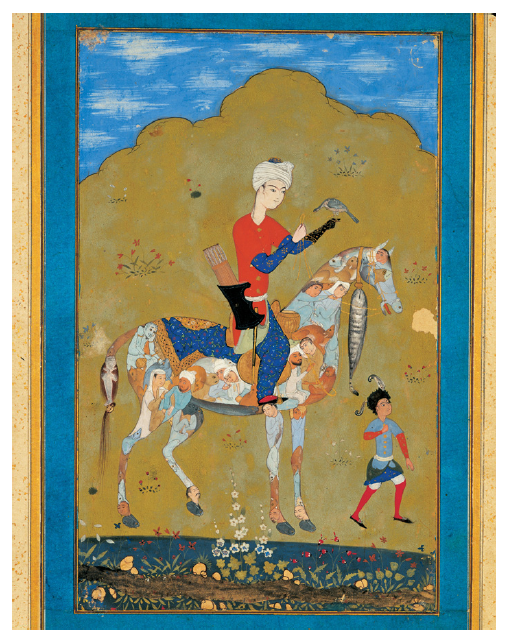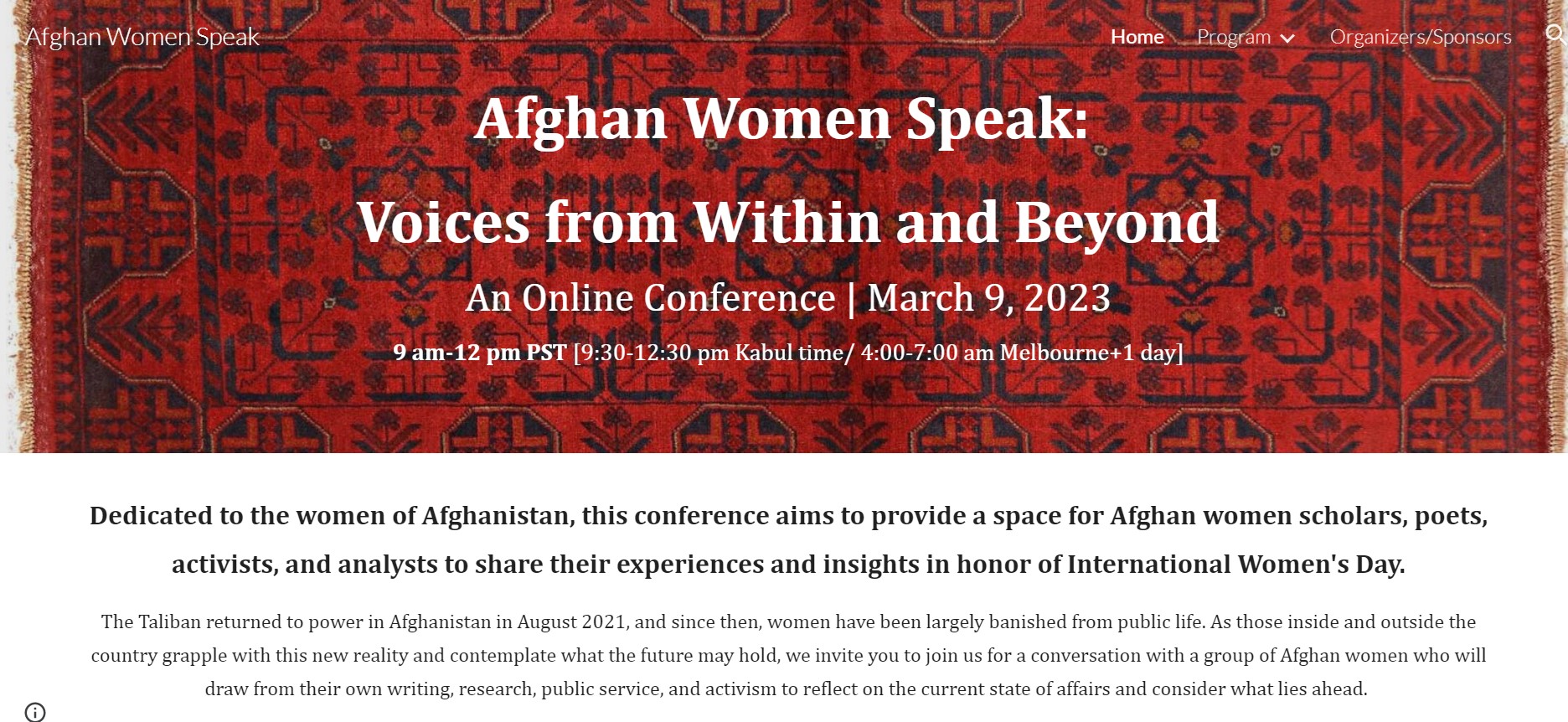Tag: conference
Conference at UC Berkeley: Ruling Together Consultation and Collaboration in the Political Regimes of Premodern Eurasia
Ruling Together: Consultation and Collaboration in the Political Regimes of Premodern Eurasia
February 16, 2024
Maude Fife Room, 315 Wheeler Hall, UC Berkeley
Organized by Tang Center for Silk Road Studies

The conference focuses on the medieval and early modern periods (1000-1700 CE) as a crucial era for cross-cultural contact, challenging the lesser emphasis this period has received within “Silk Road” scholarship. It argues that viewing Eurasia merely as a space of intermittent object and idea exchange through trade or diplomacy depoliticizes cultural and goods spread, which is inadequate for understanding the political dynamics of these centuries dominated by the Mongol Empire and its successors. Emphasizing the role of political institutions in transregional history, the conference aims to integrate the study of cross-cultural contact with political history, highlighting Central Asia’s significance in the global political history of the medieval and early modern periods.
8:30 Tea and Coffee
9:00 Welcome Remarks
Panel 1
Who Should Rule? Institutions of Sovereignty and Succession
9:15 Christopher Atwood, University of Pennsylvania
The First Interregnum: Imperial Stake Holders in a (Temporarily) Khan-less World
9:45 Michael Bechtel, Nazarbaev University
Mongol Empire 1229-46: Frameworks of Rule and Redistribution (Related article is here)
10:15 Jonathan Brack, Northwestern University
Chinggisid Family Feuds, Islamization, and the Religious Sphere in Mongol-ruled Iran
10:45 Evrim Binbaş, University of Bonn
The Theater of Constitutional Ideas: The First Timurid Civil War and Shahrukh’s Ascension to Timur’s Throne
11:15 Discussion
11:45 Lunch break
Panel 2
How to Rule? Transcontinental Institutions
1:30 Carol Fan, University of Bonn
Revenue sharing networks within the Mongol Empire and transregional contacts
across Eurasia in the 13th and 15th centuries
2:00 Paehwan Seol, Chonnam National University
The Jarghu: Mobile Courts and Justice Networks of the Mongols throughout East-
West Asia during the 13th to 14th Centuries
2:30 Natalia Królikowska, University of Warsaw
Numerous Nogay peoples, the Circassians and innumerable Tatars’ influence on the decision-making process in the Crimean khanate.
3:00 Discussion
3:30 Tea and Coffee
Panel 3
What is Ruling? Conceptualizing State and Empire
3:45 David Sneath, University of Cambridge
The Lords’ Administration: Mongolian aristocratic governance and the state as social
relation
4:15 Munkh-Erdene Lhamsüren, National University of Mongolia
The Chinggisid Sovereignty: Myth, Archetype, and Transformation (see similar article here)
4:45 Kaveh Hemmat, Benedictine University
Rule of Law in Islamicate Civic Lore Concerning the Mongol Empire and China
5:15 Discussion
Happy International Women’s Day and Conference Dedicated to International Women’s Day!
In many of the world, we enthusiastically celebrate International Women’s Day. We were not aware then of Valentine’s Day and scamming of flower prices then. While the questions surrounding diverse values, gender identities, and contemporary politics are complicated, it is important to note that for many in the world, the basic human rights that we take for granted in the United States are beyond reach. I have been asked today to post a courtesy conference that is not affiliated with our library in which I will participate as a member of the organizing committee in my private capacity. The conference is dedicated to women of contemporary Afghanistan.
The conference will occur tomorrow, March 9th, from 9 am PST through 12 noon. The website for the conference is Afghan Women Speak: Voices from within and beyond. The conference is FREE and OPEN to all with prior registration.

Tomorrow: November 10-México: La Conquista-Independencia-Adaptación:1521-1821-2021
Conference: México: La Conquista-Independencia-Adaptación:1521-1821-2021 that is scheduled to take place on November 10th virtually. We are grateful to the sponsors of this virtual conference: UC Berkeley Library, Center for Latin American Studies, and the Department of Spanish and Portuguese of UC Berkeley.
Two hundred years ago today, Mexico signed the Declaration of Independence from the Spanish Empire (Acta de Independencia del Imperio Mexicano). The conference is dedicated to noting some critical landmark dates in the history of Mexico and Latin America. I am also attaching an image of a conference poster that our library’s communications team members have created. We also note that the image used for this poster is from Codex Yoalli Ehecatl (also known formerly as Codex Borgia).
We are grateful to all faculty members across our continent who will be speaking at this conference. All are welcome to attend with prior registration the whole forum or its parts as you see fit in your busy workday.
Please register here: https://sites.google.com/berkeley.edu/mexico-1521-1821-1921/home/registration-inscripci%C3%B3n?authuser=0
The Organizing Committee: Dr. Liladhar R. Pendse and Professor Ivonne Del Valle, UC Berkeley
Conference Sponsors: UC Berkeley Library, Center for Latin American Studies, Department of Spanish and Portuguese, UC Berkeley

Call for Proposals: LAUC-B 2021 Conference Oct 5-6 2021 – Reimagining Libraries Through Critical Library Practices, October 5-6, 2021- Call for Proposals Due June 15, 2021

The Librarian’s Association of the University of California, Berkeley (LAUC-B) invites you to submit a proposal for the 2021 conference, Reimagining Libraries Through Critical Library Practices, an online conference that will take place Tuesday, October 5 to Wednesday, October 6, 10 am to 3 pm PST.
Proposals are due Tuesday, June 15, 2021, and can be submitted using this form. We will notify successful applicants by July 15, 2021.
For further conference information and the full call for proposals, please visit LAUC-B 2021 Conference Website
Call for proposals brief version: Library work is embedded in and inherently tied to socio-political circumstances. We welcome proposals that emphasize and examine critical librarianship through the lens of social justice, diversity, equity, inclusion, and anti-racist work.
We invite proposals from diverse voices addressing critical library practices including:
- Community Archives, Inclusion, and Underrepresented Communities
- Critical Library Pedagogy
- Developing standards for critical librarianship in Digital Literacy and Digital Scholarship
- Diversity, Equity, and Inclusion
- Open Access
- Social Justice and Anti-racist Work
- The theory and practice of critical library work that includes all library professionals
All proposal abstracts should be no more than 300 words and indicate the type of session you are proposing. We will be holding the following session formats:
- Lightning Talks (5-7 minute presentations)
- 20-minute individual presentations
- 50-minute panel
- Poster session
We encourage proposals for virtual presentations that represent all aspects of library work (including technical services, access services, interlibrary loan, reference, instruction, library administration, technology, youth services, and more) and all library workers (including library students, paraprofessionals, and members of underrepresented groups).
For further conference information, please visit here.
Please submit your proposal by Tuesday, June 15, 2021. Successful applicants will be notified by Thursday, July 15, 2021.
If you have any questions, please contact us through the website or at laucbconfinfo@lists.berkeley.edu
Sincerely,
LAUC-B 2021 Conference Committee:
Paromita B. (UCLA)
Kelsey B. (UCI)
Kristina B. (UCB)
Lia F. (UCSD)
Ann G. (UCB)
Shannon K. (UCB)
Corliss L. (UCB)
Natalie M. (UCI)
Jin M. (UCSD)
Erica N. (UCB)
Liladhar P. (UCB)
Scott P (UCB)
Christina V. (UCB)
A Library Research Journey (Pandemic Edition)

Even beyond those who believe that librarians sit around and read books all day (which would be delightful but is most definitely not our reality), many are surprised to learn that librarians double as active researchers. This is especially true in settings where librarians are members of the faculty, but even where that isn’t the case, such as at Berkeley, librarians are born investigators and it carries over into wanting to find out about and add to knowledge of our settings.
What does it look like to conduct library research? Glad you asked! In our case, it started with a conversation and an idea. Natalia Estrada (now Berkeley’s Political Science and Public Policy Librarian, then the Social Sciences Collection and Reference Assistant and in library school) and I were talking about how much we admired the work of Kaetrena Davis Kendrick. Kendrick wrote a foundational work in the study of librarian workplace morale, The Low Morale Experience of Academic Librarians: A Phenomenological Study, and it sparked many more studies on this topic. But, where were the studies of library staff experiences? We wanted to find out!
We were lucky to recruit two colleagues who added so much to the team: Bonita Dyess, Circulation/Reserves Supervisor at the Earth Sciences/Map Library, and Celia Emmelhainz, Berkeley’s Anthropology & Qualitative Research Librarian. First we applied for (and eventually got) funding for the research from LAUC (the Librarians Association of the University of California). This meant we could pay for transcribing our interviews, give the participants gift cards, and buy qualitative data analysis software. Then we applied for (and got) approval from the IRB (Institutional Review Board), making sure we were complying with processes for research with human subjects.
Here’s where the “pandemic edition” part comes in. All this planning and applying, starting in November 2019, took time; so, at the point we were actually ready to recruit participants, it was April 2020. We were sheltering in place, and not sure how this all would work (although it was probably better than having to go virtual in mid-stream)! Nevertheless, we hurled out information about and invitations to be part of the study to every list-serv, association, and friendly librarian we could think of, nationwide. We ended up doing 34 interviews with academic library staff from a range of locations and institution types (purposefully excluding the UC system), during a three-week period in May-June 2020. Due to COVID these were all online, either by phone or Google Meet (sort of like Zoom), and we asked a structured list of questions, with room for branching into other topics, or diving deeply. Celia trained a wonderful student to transcribe the interviews, and once we had those transcripts and stripped identifying information from them, we were off– coding away (using MAXQDA software), and drawing themes, quotes, recommendations, and other findings from the surprisingly rich information we’d collected.
Next—we had to start getting the information out into the world! Our eventual goal is to write a paper, or several, for publication. There are a number of library and information science journals out there that we are considering… but that takes time as well, and we wanted to start presenting our findings sooner. So, we did an “initial findings” presentation to the UC Berkeley Library Research Working Group, and then stepped into the big time with acceptance to present a poster at the 2021 Association of College and Research Libraries online conference (our poster got almost 600 views), and with a webinar we did for the Pennsylvania Library Association (both the poster and the webinar slides are available through the UC’s eScholarship portal). All our work to get to this point is hopefully now helping others.

And, a word about connecting with our participants. We were bowled over by their generosity with us and by all they had to say: much that we didn’t expect, and much that they were grateful someone was even asking about. It ended up that we had captured one of the last opportunities to get a snapshot of pre-COVID library staff life; people were still in limbo, and talked about their regular jobs before any lockdowns, for the most part. At that point most expected to be back in their libraries and all to be normal by the end of the summer 2020. We know now that that didn’t happen, and we know that library re-openings and staff roles in them have been challenging and sometimes contentious; we wish we’d known to ask for permission to re-interview our participants—even if only to check in with them. But how could we have known? We wonder how they are.
So now, we have papers to write, and thinking to do about how to take our questions into new avenues of research—because it’s a never-ending, and completely exciting process, and, we suspect, will be very different (easier? or not?) in the post-COVID landscape. Do you have ideas for us? We’d love to hear them! Or want to hear more about our morale study? Please get in touch with us at librarystaffmorale@berkeley.edu!
OHC at the Oral History Association Conference
As with most things this year, the 2020 Oral History Association conference will be held digitally. The theme, “The Quest for Democracy: One Hundred Years of Struggle,” was inspired by the Centennial of the 19th Amendment, which granted women the right to vote, yet excluded Black men and women in the Jim Crow South. In choosing this theme, we hoped to encourage submissions that interrogate the idea of “Democracy,” its inherent assumptions and challenges; submissions of oral history projects that illuminate the ways in which we participate in democracy, who has access to the political process and who has historically struggled to gain such access.
OHC’s own Shanna Farrell and the Smithsonian’s Kelly Navies (who is one of our Advanced Summer Institute alumni!) served as the conference co-chairs and are very excited to kick off what promises to be an engaging and dynamic week of presentations.
If you’re attending next week, we’d love for you to check out sessions from the OHC staff. Here’s the lineup:
- Monday, October 19:
- Amanda Tewes leading “An Oral Historian’s Guide to Public History” workshop from 11am – 2:30pm ET/8 – 11:30am PT
- Wednesday, October 21:
- Paul Burnett will be on the “Educating in High School and University Involves Listening” panel talking about UC Berkeley OHC K16 Outreach Project: The HIV/AIDS Curriculum Pilot at 3:30pm ET/12:30 PT
- Shanna Farrell will be chairing the “Oral History for an Audience: Podcasts, Performance, and Documentaries” session at 3:30pm ET/12:30 PT
- Thursday, October 22:
- Roger Eardley-Pryor will be talking to OHC narrator Aaron Mair for the “Hitched to Everything: Aaron Mair, Environmental Justice, and the Sierra Club” session that will be chaired by Shanna Farrell at 3:30pm ET/12:30 PT
We hope to “see” you there!
Great talks and fun at csv,conf,v3 and Carpentry Training
Day1 @CSVConference! This is the coolest conf I ever been to #csvconf pic.twitter.com/ao3poXMn81
— Yasmina Anwar (@yasmina_anwar) May 2, 2017
On May 2 – 5 2017, I (Yasmin AlNoamany) was thrilled to attend the csv,conf,v3 2017 conference and the Software/Data Carpentry instructor training in Portland, Oregon, USA. It was a unique experience to attend and speak with many people who are passionate about data and open science.
The csv,conf,v3
The csv,conf is for data makers from academia, industry, journalism, government, and open source. We had amazing four keynotes by Mike Rostock, the creator of the D3.js (JavaScript library for visualization data), Angela Bassa, the Director of Data Science at iRobot, Heather Joseph, the Executive Director of SPARC, and Laurie Allen, the lead Digital Scholarship Group at the University of Pennsylvania Libraries. The conference had four parallel sessions and a series of workshops about data. Check out the full schedule from here.
.@ErinSBecker is talking @CSVConference about @datacarpentry & @swcarpentry workshops! #csvconf pic.twitter.com/beKOixMNrt
— Yasmina Anwar (@yasmina_anwar) May 2, 2017
If you wanna change the culture, start early! @ProjectJupyter @openscience @CSVConference #csvconf pic.twitter.com/7OVMjMvVrc
— Yasmina Anwar (@yasmina_anwar) May 2, 2017
"Speak out, step up, take actions" Great ending for an amazing keynote by @hjoseph @CSVConference #csvconf pic.twitter.com/O4Vogsfhe4
— Yasmina Anwar (@yasmina_anwar) May 2, 2017
Fascinated by @yasmina_anwar's research on using web archives to automatically create histories for the next generation. #csvconf pic.twitter.com/sbI359n5Bk
— V Ikeshoji-Orlati (@vikeshojiorlati) May 3, 2017
I presented on the second day about generating stories from archived data, which entitled “Using Web Archives to Enrich the Live Web Experience Through Storytelling”. Check out the slides of my talk below.
I demonstrated the steps of the proposed framework, the Dark and Stormy Archives (DSA), in which, we identify, evaluate, and select candidate Web pages from archived collections that summarize the holdings of these collections, arrange them in chronological order, and then visualize these pages using tools that users already are familiar with, such as Storify. For more information about this work, check out this post.
https://twitter.com/HamdanAzhar/status/859851223515582464
The csv,conf deserved to won the conference of the year prize for bringing the CommaLlama. The Alpaca brought much joy and happiness to all conference attendees. It was fascinating to be in csv,conf 2017 to meet and hear from passionate people from everywhere about data.
#commaLlama is in the chapel 😃! This is amazing! #csvconf @CSVConference pic.twitter.com/cnQJzQ9L3h
— Yasmina Anwar (@yasmina_anwar) May 3, 2017
#commaLlama with @CLIRnews fellows @vikeshojiorlati and @yasmina_anwar @CSVConference #csvconf pic.twitter.com/Mpfooy9ccP
— Yasmina Anwar (@yasmina_anwar) May 3, 2017
#Trump 😒 😡vs #Clinton😭💕 #emoji #emojis #electionsemojis #csvconf pic.twitter.com/yYoUzm158H
— Yasmina Anwar (@yasmina_anwar) May 3, 2017
#Data needs to be findable, accessible, interoperable, reusable! @rchampieux #csvconf pic.twitter.com/1VIQzHSIh4
— Yasmina Anwar (@yasmina_anwar) May 3, 2017
Shout out for all @CSVConference organizers! We enjoyed all the talks, keynotes, #commaLlama #csvconf #data pic.twitter.com/BLjRCCRYdu
— Yasmina Anwar (@yasmina_anwar) May 4, 2017
After the conference, Max Odgen from the Dat Data Project gave us a great tour from the conference venue to South Portland. We had a great food from street food trucks at Portland, then we had a great time with adorable neighborhood cats!
https://twitter.com/yasmina_anwar/status/860017390968492032
Tha Carpentry Training
Congratulations, everyone! You did it! Portland 2017 cohort of @datacarpentry / @swcarpentry Instructors! @LibCarpentry #porttt pic.twitter.com/J3ceEzwOBQ
— Library Carpentry (@LibCarpentry) May 5, 2017
https://twitter.com/LibCarpentry/status/860571982479241216
The two days had a mix of lectures and hands-on exercises about learning philosophy and Carpentry teaching practices. It was a unique and fascinating experience to have. We had two energetic instructors, Tim Dennis and Belinda Weaver, who generated welcoming and collaborate environment for us. Check out the full schedule and lessons from here.
.@yasmina_anwar just convinced me to fall in love with RStudio from her live code teaching example at #porttt.
— Elaine Wong (@elthenerd) May 5, 2017
At the end, I would like to acknowledge the support I had from the California Digital Library and the committee of the csv,conf for giving me this amazing opportunity to attend and speak at the csv,conf and the Carpentry instructor training. I am looking forward to applying what I learned in upcoming Carpentry workshops at UC Berkeley.
–Yasmin